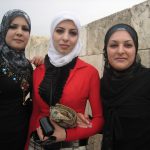Unclear Laws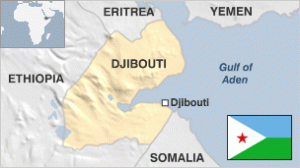
Djibouti, which had a population of 818,159 at the 2009 census, is one of the least populous countries in Africa. Islam is the largest religion in the country, practiced by 94% of the population. The territory was declared an independent nation in 1977 and changed its name to the Republic of Djibouti While Djibouti is an independent sovereign state, it maintains deep French relations, and through various military and economic agreements with France, it receives continued security and economic assistance.
The laws regarding homosexuality in Djibouti are vague and can sometimes be confusing, but it is generally understood that homosexuality is de facto illegal. Djibouti gained independence from France in 1977 but unlike most former French colonies the attitudes of the public and the laws relating to homosexuality are far from liberal, which may be due to the influence of Islamic law.
Horn of Africa correspondent, Faro interviews a Djiboutian.:. According to Kasdil (names have been changed) a man from Djibouti, there are many gay and lesbian people living in the country but they have little by way of a social life. “We are living undercover, unconfident and in fear… “Our general situation is very dangerous because we do not have an association which can represent us in a legal fight; we don’t have much Internet, we don’t have any services for health, education or fun. We look to worldwide organizations of human rights for helping us.”
(http://www.ucalgary.ca/sw/ramsay/africa/somalia-djibouti-eritrea.htm)
The U.S. Department of State’s 2010 Human Rights Report found that “there were no known reports of societal violence or discrimination based on sexual orientation. Societal norms do not allow for the public discussion of homosexuality, and persons do not openly acknowledge having a homosexual orientation.”
Most people interpret the Constitution of Djibouti as decriminalizing homosexuality, but the government tends to adhere to Islamic law more than constitutional law, rendering homosexuality illegal. Because of a largely homophobic Muslim majority, homosexuals are not able to have much in way of a social life. If homosexuals in Djibouti wish to pursue their orientation, they must do it in secret, to avoid oppression from the government or people in general. (ILGA report)
Politics of Protest
Djibouti’s second president, Guelleh, succeeded Hassan Gouled Aptidon in office in 1999. Despite elections of the 1990s being described as “generally fair”, Guelleh was sworn in for his second and final six-year term as president after a one-man election on 8 April 2005. He took 100% of the votes in a 78.9% turnout. In February 2011 protesters in Djibouti joined the Arab world protests, demanding that President Guelleh step down.
Two-thirds of the inhabitants live in the capital city, the remainder being mostly nomadic herders. Scant rainfall limits crop production to fruits and vegetables, and most food must be imported. An unemployment rate of 40% to 50% continues to be a major problem. Inflation is not a concern, however, because of the fixed tie of the franc to the U.S. dollar.
Djibouti has fought in clashes against Eritrea over the Ras Doumeira peninsula, which both countries claim to be under their sovereignty.
Anti-gay Religions
Djibouti’s population is predominantly Muslim. Islam is observed by 94% of Djibouti’s population (about 740,000) while the remaining six percent follow Christianity.
The Republic of Djibouti names Islam as the sole state religion, the Constitution of 1992 provides for the equality of citizens of all faiths as well as the freedom to practise any religion. Djibouti’s Family Code (Code de la Famille) of 2002 prohibits Muslim women from marryi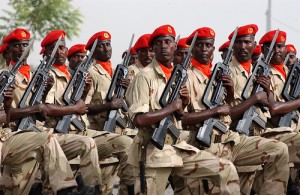 ng non-Muslim men, unless the men convert to Islam. Marriage, divorce and inheritance are handled by the Family Court which applies the Family Code and has jurisdiction over Muslims, while non-Muslims must instead turn to civil courts. According to the International Religious Freedom Report 2008, while Muslim Djiboutians have the legal right to convert to another faith or marry outside of Islam, “converts may face negative societal, tribal, and familial attitudes towards their decision” and often face pressure to revert to Islam.
ng non-Muslim men, unless the men convert to Islam. Marriage, divorce and inheritance are handled by the Family Court which applies the Family Code and has jurisdiction over Muslims, while non-Muslims must instead turn to civil courts. According to the International Religious Freedom Report 2008, while Muslim Djiboutians have the legal right to convert to another faith or marry outside of Islam, “converts may face negative societal, tribal, and familial attitudes towards their decision” and often face pressure to revert to Islam.
Between 7,000 and 8,000 Catholics live in Djibouti, of which some 300 are local Djiboutians, the rest being foreigners. The Christian population largely consists of foreign-born or expatriate residents. Djibouti has a Catholic diocese, 4 Catholic priests all of whom are foreigners – as well as about 40 Catholic missionaries.
For LGBT Djiboutians life is lived imitating the heterosexual and religious orthodoxy with no outward expression of personal truth. Intimate emotional and sexual relationships are no doubt present in the society but are kept deeply in secret. There is virtually zero tolerance for same-sex orientation among Muslims and Catholics.
Epilogue May 2013
GlobalGayz letter to an American lawyer advocating on behalf of a Djibouti gay man seeking asylum:
“I am a student attorney at the Refugee and Human Rights Clinic at the University of Maine School of Law. We are representing asylum seekers, pro bono, who fled their home countries. Currently, I am representing a gay man who was forced to flee Djibouti because of the death threats that he received after his community and tribe found out that he is gay. As part of my work on that case I am researching the treatment of LGBT individuals in Djibouti, the treatment of LGBT individuals in countries that follow Sharia law, and honor killings/crimes as they relate to the LGBT individuals. In my research I came across your article “Gay Life in Djibouti, Africa.” Would you mind speaking with me more about the treatment of LGBT individuals in Djibouti?”
Dear DB,
It is very generous and important that you are assisting the gay man from Djibouti who wants to leave his home.
Dealing with asylum seekers, as no doubt you are aware, is difficult and awkward since the claim of ‘being homosexual’ has been abused in recent years, ever since the West has offered a sympathetic ear to that particular plight claim. Numerous non-gay asylum seekers have latched on to this label as a ruse to escape hardship and get their case moved further up the line more quickly for consideration by a host country. There is an ongoing debate and conundrum as to how an alleged gay person proves he or she is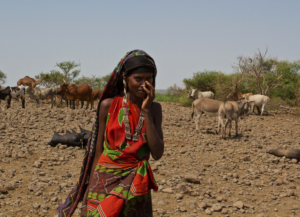 indeed LGBT– adding another layer of difficulty to the issue of being at risk or in danger of harm at home.
indeed LGBT– adding another layer of difficulty to the issue of being at risk or in danger of harm at home.
Regarding, that risk, after endless research and travel time invested in studying the situation for LGBT folks in Africa, from RSA to Morocco to Egypt to Mozambique, (I have not yet been to Djibouti or Eritrea or Ethiopia, but hope to soon) I can clearly say that the African continent in general is one of the most toxic environments for sexual minorities. In the north, Islam is becoming more and more suffused with Sharia extremism; in the south of the continent the once-moderate Christian population has been whipped up by fundamentalists who have declared death to queers, as evidenced in Uganda’s pending severe draft legislation.
As for Djibouti, I cannot testify to first person accuracy regarding the level of risk that your client may face; situations vary from family to family, town to town and neighborhoods. Hiding one’s same-sexual orientation is a priority in any Muslim (and strong Christian) country. By far, the most common method of masking this is heterosexual marriage. It my professional estimate that most LGBT people on this planet are in such marriages in order to protect one’s personal safety, to protect one’s family honor, to avoid unbearable rejection from one’s family/tribe, church, community, job and reputation. Sexual differences are a rejected condition that, to this day, result in great risk to an individual. Being gay stigmatizes and stains a person for life in their home environment. That’s why countless men and women see their only way out is to leave and start a new life in a tolerant country with human rights respect and protection.
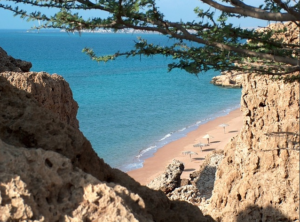 War-torn and impoverished and corrupt Djibouti is clearly not one of these countries. The fate of your client in Djibouti would depend much on who knows how much about him. If he has been exposed or caught in the ‘act’ and has been publicly identified his chance for survival are low, perhaps not actual death but the stigma will follow him (the country is small) and it’s unlikely he will find a job and therefore be rendered destitute. His only option would be to leave the country. If he has not been exposed and his major issue is fear. This could be an argument against his asylum request since he is not in actual danger and he can mask his truth with a camouflage marriage. (I met numerous gay men who married and did their ‘duty’ by giving their wives children. This somewhat ‘frees’ the gay husband to pursue romance and passion with a desired man, although very much on the sly.)
War-torn and impoverished and corrupt Djibouti is clearly not one of these countries. The fate of your client in Djibouti would depend much on who knows how much about him. If he has been exposed or caught in the ‘act’ and has been publicly identified his chance for survival are low, perhaps not actual death but the stigma will follow him (the country is small) and it’s unlikely he will find a job and therefore be rendered destitute. His only option would be to leave the country. If he has not been exposed and his major issue is fear. This could be an argument against his asylum request since he is not in actual danger and he can mask his truth with a camouflage marriage. (I met numerous gay men who married and did their ‘duty’ by giving their wives children. This somewhat ‘frees’ the gay husband to pursue romance and passion with a desired man, although very much on the sly.)
Another important factor is whether your man wants to, indeed, mask his truth. If so, such a person will have a life of hiding, lying and secrecy (revealing himself to only a handful of trusted friends or perhaps having a secret boyfriend or risking danger by finding one-night stands with strangers). Other people refuse to live a lie which puts them in harm’s way. If one refuses to mask himself he will face the social ostracism mentioned above.
So, if your man has been exposed, he should be awarded asylum to avoid danger and misery. If not exposed he could be sent home with the admonition to keep quiet, get married and live a double life that avoids danger (if he is smart) and misery. And of course it depends on the character of the individual as to how capable he is to manage a less-than-desired outcome. One person may collapse or contemplate suicide while another is strong enough to return home and carry out the ‘farce’–but the farce is a way of staying in his family, town, country, job and religion. Some people in this crap-shoot journey of life have comfort and synchronicity and others have distress and misfortune… go figure.
Also see: Non-gay tourist story about Djibouti
Compiled by Richard Ammon
GlobalGayz.com
February 2016




